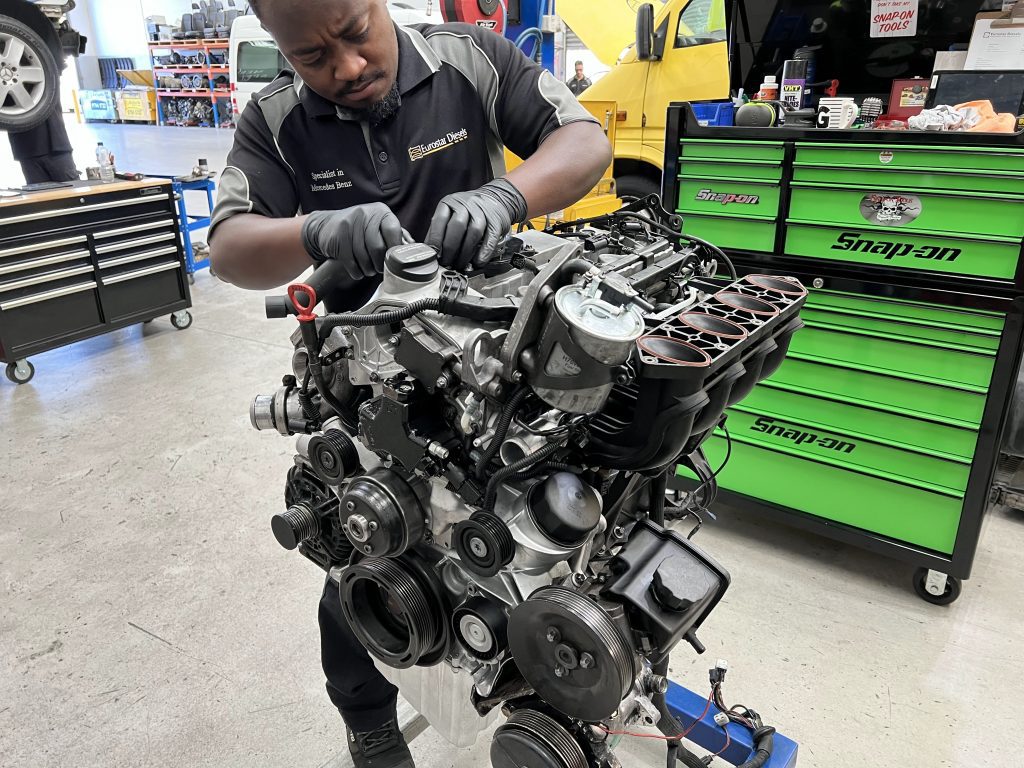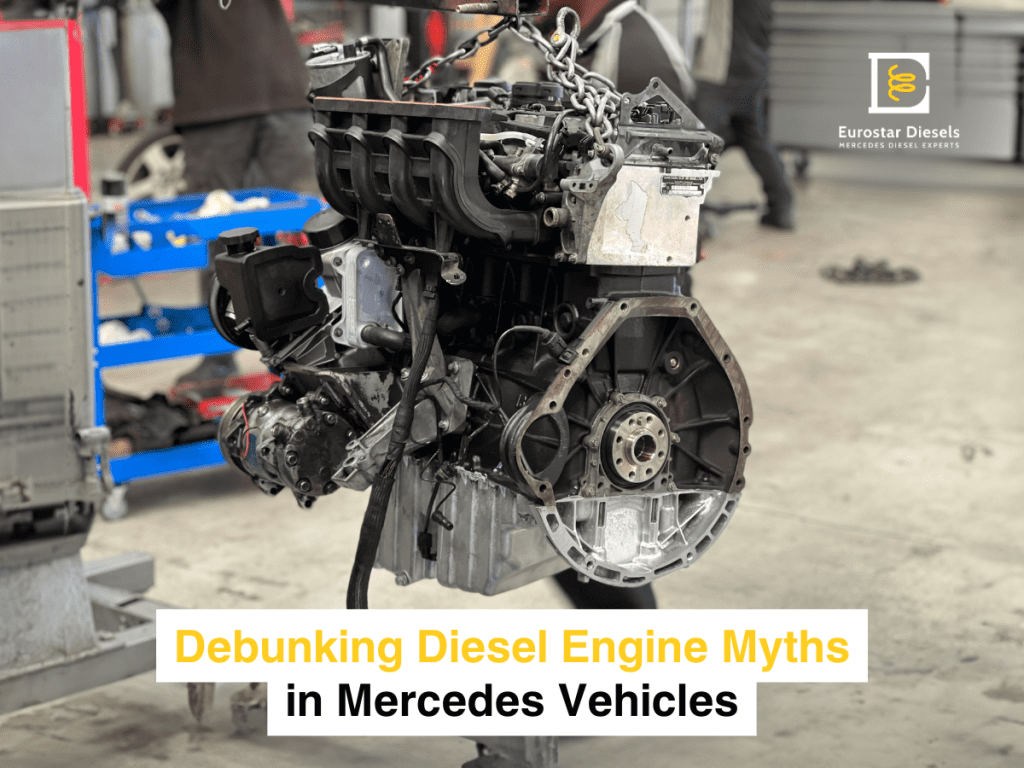Diesel engines have long been known for their robustness, fuel efficiency, and durability. However, despite their advantages, diesel engines, especially in luxury vehicles like Mercedes-Benz, are surrounded by a cloud of misconceptions. These myths can mislead potential buyers or even lead current owners to mismanage their vehicles. Let’s set the record straight and debunk some common misconceptions about diesel engines in Mercedes vehicles in Australia.
Misconceptions:
Misconception 1: Diesel Engines are Noisy and Unrefined
A common myth about diesel engines is that they are noisy, clunky, and lack the smoothness of petrol engines. This belief may have been true in the past, but it doesn’t hold up today, especially with Mercedes vehicles.
Mercedes-Benz has invested significantly in refining diesel technology. Modern Mercedes diesel engines come equipped with advanced engineering solutions that minimise noise and vibration. Features like common-rail direct injection, turbocharging, and improved sound insulation make these engines as quiet and smooth as their petrol counterparts. In fact, the refinement in Mercedes diesel engines ensures that unless you’re an engine enthusiast, you might not even notice the difference from inside the cabin.
Misconception 2: Diesel Engines are Dirty and Polluting
This myth is particularly damaging and needs urgent clarification. Older diesel engines were known for producing soot and higher levels of nitrogen oxides (NOx). Australia has since implemented strict emission standards, so all modern diesel vehicles need to comply with these standards, making them a clean choice. So, modern Mercedes diesel engines have undergone significant advancements.
Mercedes is at the forefront of clean diesel technology with innovations like BlueTEC. This technology uses a combination of particulate filters, NOx absorbers, and AdBlue (a urea-based solution) to convert harmful nitrogen oxides into harmless nitrogen and water. In Australia, where emissions standards are stringent, these technologies ensure that Mercedes diesel engines meet or exceed local regulations, making them a clean and environmentally responsible choice.
Misconception 3: Diesel Engines are Expensive to Maintain
There’s a belief that diesel engines are more costly to maintain compared to petrol engines. While diesel engines have unique maintenance needs—such as more frequent oil changes and attention to the fuel system—the overall cost of maintaining a diesel engine is not necessarily higher.
Mercedes diesel engines are designed for durability and longevity. They are built to handle high compression and long distances, which often means they outlast petrol engines with proper care. The improved fuel efficiency of diesel engines also means fewer trips to the pump, saving money over time. Regular maintenance ensures that a Mercedes diesel engine provides years of reliable service without excessive costs, as potential issues are addressed before they become a major, expensive problem.
Misconception 4: Diesel Engines are Slow and Lack Performance
Another common myth is that diesel engines are sluggish and lack the performance of petrol engines. This is not the case, especially with Mercedes.
Modern Mercedes diesel engines are turbocharged, offering plenty of torque and power. Diesel engines typically produce more torque at lower RPMs compared to petrol engines, resulting in strong acceleration and excellent towing capacity. Whether cruising on the highway or navigating city streets, Mercedes diesel engines provide both performance and refinement.

Misconception 5: Diesel Engines are Only for Trucks and Commercial Vehicles
While diesel engines are indeed popular in trucks and commercial vehicles due to their torque and fuel efficiency, they are also a fantastic choice for luxury passenger vehicles. Mercedes offers diesel options across a range of models, including sedans, SUVs, and vans.
In Australia, where long drives and diverse driving conditions are common, the fuel efficiency and range of diesel engines make them particularly appealing. For those who frequently drive long distances or require a vehicle with robust towing capabilities, a Mercedes diesel vehicle offers the perfect balance of performance, efficiency, and luxury.
Misconception 6: Diesel Fuel is More Expensive
Some potential buyers shy away from diesel vehicles due to the belief that diesel fuel is more expensive. In Australia, diesel fuel is widely available, including in rural and remote areas, making it a practical choice for long-distance travel. Diesel prices can fluctuate, sometimes being more expensive than unleaded petrol, but the difference is offset by the improved fuel efficiency of diesel engines, especially over long distances, this compensates for any cost differences. Diesel vehicles typically have a longer range between refuels, reducing the number of stops needed. With the durability and efficiency of a Mercedes diesel engine, you’re making an economical choice that can deliver substantial savings over time.
In conclusion…
Diesel engines in Mercedes vehicles represent the pinnacle of modern automotive technology, blending performance, efficiency, and luxury. The misconceptions surrounding diesel engines are often based on outdated information or misunderstandings of modern technology.
By choosing a Mercedes diesel vehicle, you’re not only opting for a powerful and efficient engine but also making an environmentally responsible choice that aligns with Australia’s stringent emissions standards. The next time you hear someone spreading myths about diesel engines, you’ll be able to set the record straight.
